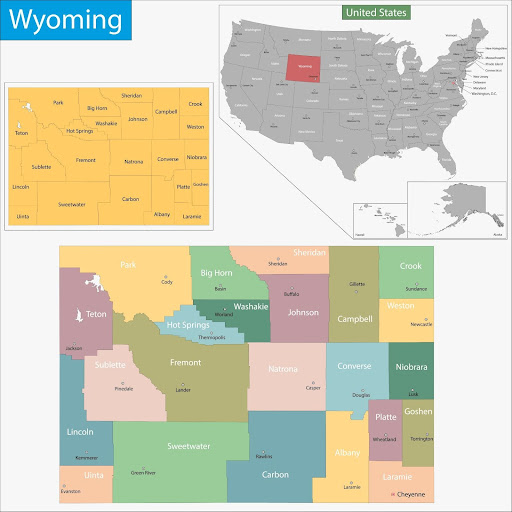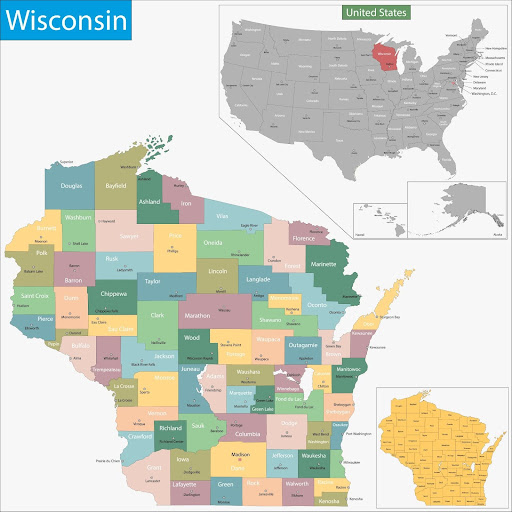Table of Content
Tennessee doesn’t burn with the same frequency as the western U.S., but when it does, it can turn fast and destructive, especially in the eastern mountains. The 2016 Gatlinburg Fire proved that even moderate fuel loads in steep terrain can create lethal firestorms when drought and wind converge.
Fire investigators in Tennessee need to navigate a patchwork of public and private lands, overlapping state and federal jurisdiction, and a surge in wildland-urban interface (WUI) development. This guide lays out the wildfire investigation resources in Tennessee, helping you move with clarity and precision from ignition scene to incident report.
For more on this topic, see our wildland fire resources page.
Live Incident Updates & Maps
Use this tool to track wildfire activity, smoke plumes, and burn permit conditions in Tennessee:
State Overview
Tennessee spans from humid lowland forests in the west to Appalachian ridges in the east. That means diverse fuels, fire behavior, and agency roles. Fire investigators will encounter everything from escaped debris burns in farmland to remote lightning strikes deep in national park wilderness.
- East Tennessee (Appalachians): Mixed hardwoods and steep slopes drive fast run-ups and crown fire potential under wind. Gatlinburg, Pigeon Forge, and the surrounding areas are high-risk WUI zones.
- Middle Tennessee (Cumberland Plateau & Highland Rim): Oak-hickory forests and pine plantations dominate. Fires here often involve human causes and prescribed burn escapes.
- West Tennessee (Bottomlands & River Valleys): Less frequent wildfires, but flashy surface fuels and illegal burning create occasional investigation scenarios.
Wildfire Season Timeline
Tennessee has two distinct fire seasons, which coincide with leaf-off and dry spells. Lightning isn’t a major ignition source; human activity dominates.
- Spring (February–May): One of two peak fire periods. Dead grass and leaf litter dry out before green-up. Debris burns and equipment sparks are common causes.
- Summer (June–August): Fire activity dips due to green fuels and humidity, though isolated drought can trigger localized flare-ups.
- Fall (October–December): This is the second and often most dangerous fire season. Dry air, falling leaves, and cold fronts can spark intense WUI fires. The 2016 Gatlinburg fire occurred during this window.
Key State Agencies Involved
- Tennessee Department of Agriculture – Division of Forestry (TDF): TDF leads wildfire suppression and investigation across state and private lands. They maintain regional wildfire operations units, issue burn permits, and staff trained fire investigators. Investigators frequently coordinate with TDF Fire Chiefs or Area Foresters for access and jurisdictional guidance.
- Tennessee Emergency Management Agency (TEMA): TEMA provides coordination during multi-agency incidents. Investigators may report large wildfires requiring evacuations or inter-county support through TEMA’s unified command channels.
- U.S. Forest Service (USFS – Cherokee National Forest): Covers 650,000+ acres in East Tennessee. All wildfires within the forest follow NWCG and USFS Law Enforcement Investigation (LEI) protocols. Expect full collaboration with federal investigators on shared lands.
- Great Smoky Mountains National Park (NPS): Federal jurisdiction. All fire activity is managed under the NPS wildland fire policy. Investigations within the park require coordination with both NPS Fire Management and Law Enforcement.
Local Wildland Firefighting Resources
Local fire departments, especially volunteer units, often arrive first. Capacity varies widely by county. In rural areas, you may be working with departments that lack red card certification but have deep terrain knowledge.
TDF rangers typically take over wildland command from local agencies on state and private lands. Expect joint suppression and investigative operations in WUI zones.
List of Local/State/Federal Fire Response Agencies
Contact Numbers and Emergency Links
- To Report a Wildfire: Dial 911
- TDF Wildfire Dispatch – Central Office: (615) 837-5520
- TDF Regional Fire Contacts & Permits: https://burnsafetn.org
- Southern Area Coordination Center: https://gacc.nifc.gov/sacc
- NPS Fire Dispatch (GSMNP): (865) 436-1230
Training & Volunteering
Tennessee offers strong wildland training through TDF and federal partners, including NWCG certification and seasonal hiring tracks.
NWCG-Approved Academies and Centers
Volunteer and Seasonal Training Opportunities
- Seasonal Firefighter Program (TDF): TDF hires and trains seasonal firefighters each spring and fall. Training includes red card certification, mop-up procedures, and cause preservation basics.
- Firewise Tennessee Program: Supports WUI outreach, community education, and pre-fire planning. Investigators may collaborate on post-incident prevention strategies.
- County Fire & Rescue Training Partnerships: TDF partners with VFDs to deliver wildland basics (e.g., fire behavior, weather factors, suppression strategy) that align with NWCG principles.
Stay Informed on Tennessee’s Wildland Fire Landscape
Tennessee may not have the top national fire statistics, but the risk is real and growing. Suburban sprawl into forested areas, changing weather patterns, and persistent cultural burning practices make this a dynamic investigative landscape.
The fires you’ll encounter aren’t just accidents. They’re often predictable and preventable. Know where the burn permits are issued. Track wind shifts. And get familiar with the volunteer captains who know their backroads better than any GIS overlay.
FAQs
Who investigates wildfires in Tennessee?
TDF leads investigations on state and private lands. USFS and NPS handle federal land. Local fire departments or sheriffs may assist, especially when arson is suspected.
Can I burn brush or conduct a prescribed burn in Tennessee?
Yes, but a burn permit from TDF is required from October 15 to May 15. Visit https://burnsafetn.org for current conditions.
Where can I get wildland fire training in Tennessee?
Start with the TDF regional offices or check the Southern Area Coordination Center training calendar for upcoming NWCG courses.










